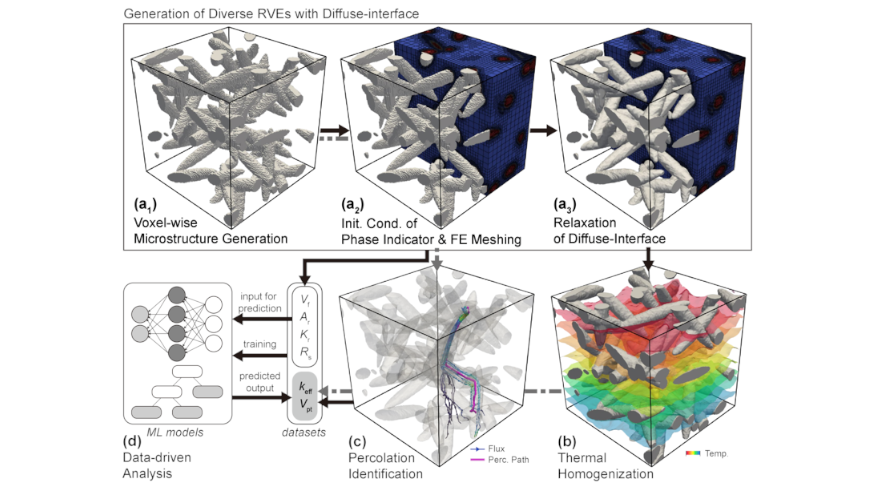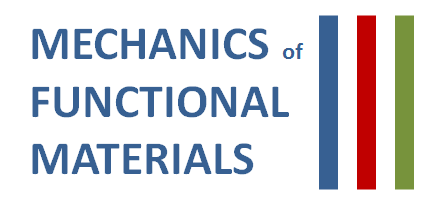Data-Driven Thermal and Percolative Analysis of 3d Composite with Interface Resistance
New Preprint on “SSRN”
2022/10/06

Authors: Mozhdeh Fathidoost, Yangyiwei Yang, Matthias Oechsner, Bai-Xiang Xu
Finite element homogenization and data analysis are carried out to comprehend the effects of various characteristics, including thermal and geometrical properties of composite constituents, the interface resistance, and the percolation path, on the effective thermal conductivity of 3D complex composite structure. A series of voxel-wise microstructure samples with various characteristics were generated. Their effective thermal conductivity was evaluated by the diffuse-interface-based computational homogenization, and the potential percolation path was identified by the voxel-based algorithm. The results show that the impact of the percolation path becomes particularly significant in the composite samples with higher values of aspect ratio and interface resistance. Based on the homogenization results, we analyze the importance of different thermal and geometrical features on effective thermal conductivity by employing the sensitivity study as a data-driven tool. The analysis also demonstrates that the particle volume fraction and the interface thermal resistance are the most influential characteristics in determining effective thermal conductivity. Finally, a surrogate model classifies the percolated/not-percolated composite structure samples by employing the decision-tree algorithm and accuracy of 93%.



